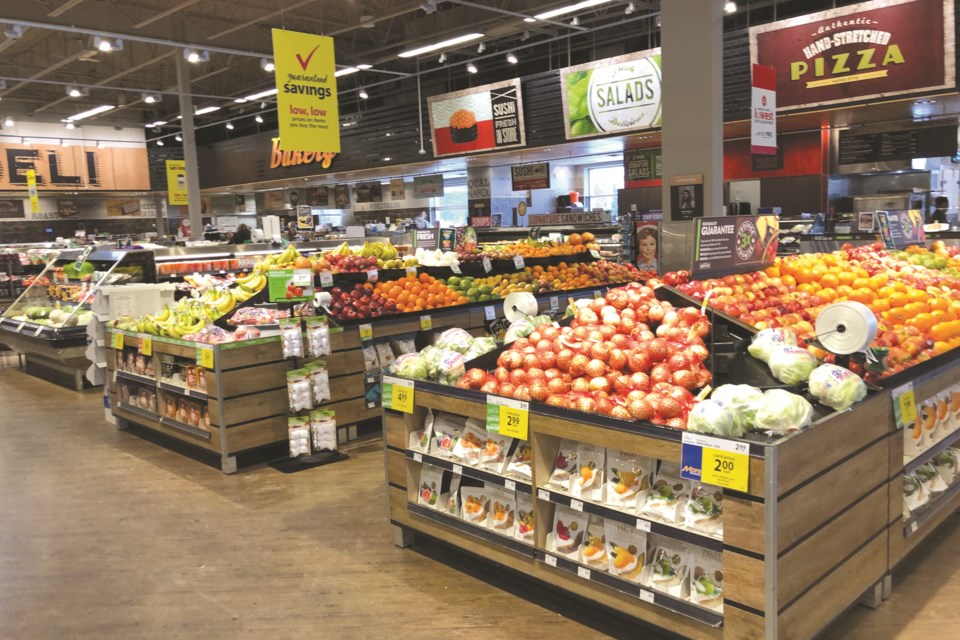With food prices anticipated to increase in 2020, local families may be contemplating how to stretch their grocery budget and ensure they get the most value for their food dollars.
According to Meghan West, programs manager at Airdrie Food Bank, the price of food has been steadily increasing over the last few years, and 2020 is likely to see more of the same.
“Trend-wise, it’s something that’s been pretty consistent, year over year, for the past few years,” she said. “Knowing exactly which items or industries are going to be impacted the most is always a little bit up in the air, but we do anticipate [increases] each year, and we know that it gets tougher and tougher for people to meet their budget and feed their families.”
According to Canada’s Food Price Report – an annual report released jointly by Dalhousie University and the University of Guelph – a two to four per cent increase in Canadian food prices is forecasted for 2020, with a predicted annual cost of food for the average Canadian family increasing to $12,667. This marks an increase of $487 compared to 2019, although the report notes price increases in Alberta are expected to be lower than the national average.
The report indicates the price of meat is expected to see the greatest change – between four to six per cent – followed by fruits at 1.5 to 3.5 per cent and dairy at one to three per cent.
In light of the likely increase in grocery bills, West and Cochrane Food Bank Chair Kathy Tucker recommended several tips and strategies for families to make the most of their food budget, both at the supermarket and in the home.
While preparing to shop, West suggests writing a list and sticking to it. If you do add items to your cart on impulse, keep those separate from the items on your shopping list, and scan them through the checkout last to see if you do have room for them in your budget.
At the store, doing some quick math and calculating the cost of items on a per-gram basis can help purchasers get the most value for their dollar.
“On the stickers at most grocery stores, there’s a price per hundred grams,” she said. “Sometimes, something that seems like a really good deal actually isn’t.”
Tucker said watching out for sales and using them as an opportunity to stock up on items can help keep your pantry full – particuarly, West added, things like meat and produce that can be frozen and used later.
“Watching flyers and knowing what’s coming on sale – that helps people with their overall grocery bills,” she said.
Although it can be a challenge in Alberta – especially during the winter – West also said to try to purchase in season and locally, which can help reduce costs.
“There are items that are in season other places that will be cheaper,” she said, noting this is particularly effective when shopping for produce.
Otherwise, Tucker said spending money on canned meats and produce that are still relatively nutritious but perhaps slightly less expensive is a good approach.
West also recommended connecting with friends or families to split the cost of buying items in bulk to take advantage of better pricing.
“You can get some of the benefit of buying in bulk without having to have a really high bill all on your own,” she said.
At home, West said the biggest thing you can do is make sure you are eating all the food you buy. This seems like a simple tip, she said, but can go a long way toward stretching a food budget.
“If you have something that you know will freeze well…like a soup or a curry or a stew or something like that – if you’re not sure when, during that week, you’re going to eat it, just pop it in the freezer right away,” she said.
West also suggests “shopping from your pantry” – building meals by using ingredients you already have in abundance and picking recipes based on what is available in your home, rather than choosing a recipe and purchasing all the ingredients – can cut down on your grocery bill.
Finally, she mentioned the Airdrie Food Bank is available to assist families that may still struggle to meet their food needs.
“We have a couple different avenues of food support,” she said. “I would say definitely give us a call [at 403-948-0063] and our staff team can work with the family.”
The Cochrane Food Bank is also available to assist residents in west RVC, and Tucker encourages people to not feel embarrassed about asking for a little help if their grocery costs become unmanageable.
“We’re here as a food bank to help people,” she said. “We’re here to help those people who maybe need one hamper to get them by and don’t need it again, and we’re here to help those that need it for a longer period of time.”
The Cochrane Food Bank can be contacted by calling Cochrane Family and Community Support Services at 403-851-2255.



